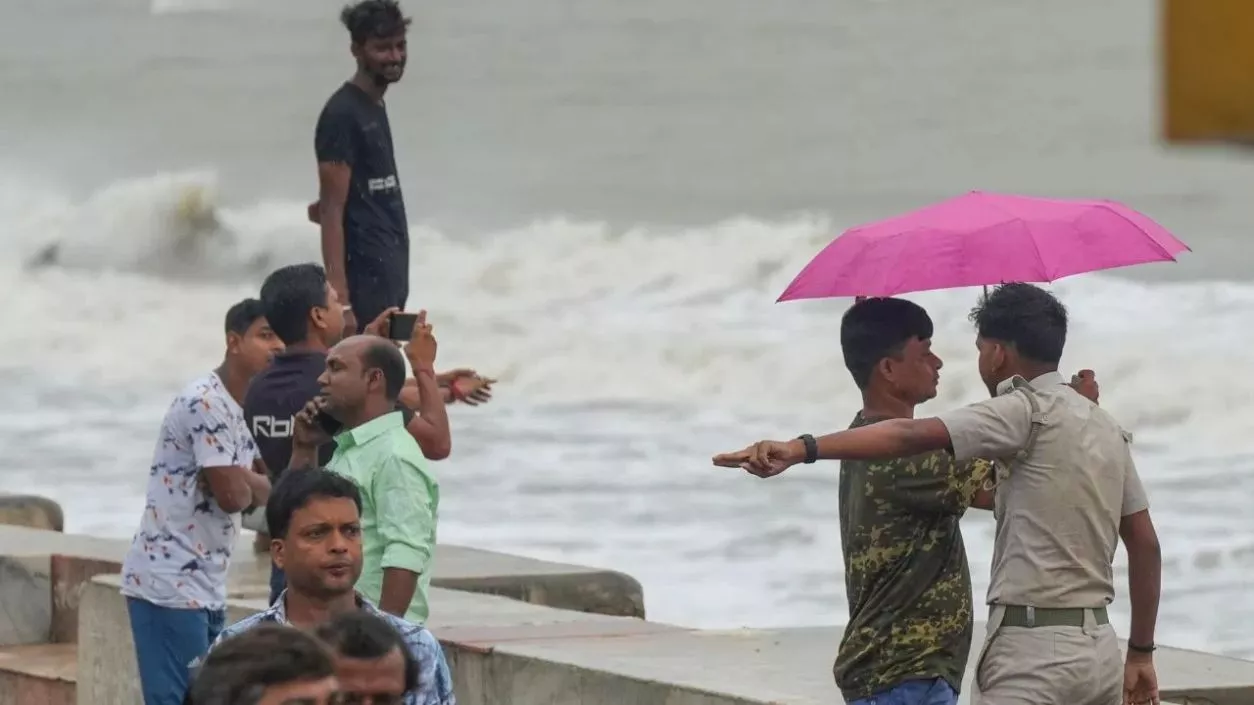.gif)
.gif)

As Cyclone Dana approaches the coast of West Bengal, residents in South 24 Parganas and East Midnapore are preparing for severe weather conditions and potential evacuations. The India Meteorological Department (IMD) has issued red alerts for these coastal districts, forecasting extremely heavy rainfall, wind speeds exceeding 100 km/h, and high tides that may lead to flooding in vulnerable areas. Reports indicate that the cyclone is expected to make landfall within the next 24 hours, causing significant concern among local authorities and residents.
Weather patterns began to shift dramatically on Wednesday, with initial reports of heavy rainfall in several regions, particularly in South 24 Parganas. By Thursday morning, multiple areas reported rainfall exceeding 100 mm, with some forecasts predicting total precipitation could reach up to 200 mm or more in specific locations. As the storm approaches, local rivers, including the Matla, have begun to swell, raising fears of overflow and flooding in low-lying regions.
The situation is especially precarious in Matla and Kulhtali, where residents have been urged to remain indoors and prepare emergency supplies. The local administration has set up emergency control rooms to coordinate response efforts, while boats and rescue teams are on standby for possible evacuations. “Our biggest fear is the river overflowing and our homes being flooded again. We remember the devastation from previous cyclones,” said Prakash Dutta, a community leader in the area.
In preparation for the impending cyclone, the West Bengal government has implemented a series of precautionary measures. Emergency response teams have been dispatched to the most vulnerable areas, reinforcing riverbanks and clearing drainage systems to manage the expected rainfall. Furthermore, the lockgate at the Matla River will be closed to help control water levels and prevent flooding in surrounding communities. The Kolkata Port Trust has also halted maritime operations, advising ships to remain in safe zones due to rough seas and high winds predicted for the next few days.
The impact of Cyclone Dana extends beyond immediate flooding risks. Experts warn that climate change has been linked to increasing cyclone intensity in the Bay of Bengal. The frequency of cyclones has risen, with the region experiencing several devastating storms in recent years, including Cyclone Amphan in 2020 and Cyclone Yaas in 2021. These events have prompted calls for improved disaster management strategies and infrastructure investments to protect vulnerable coastal communities.
Local leaders are advocating for stronger policies that prioritize resilience against natural disasters. "We need better infrastructure to withstand these storms. Our communities are at risk, and we must act quickly to prevent future devastation," emphasized activist Reena Chatterjee.
As Cyclone Dana strengthens, residents are advised to stay informed through official updates from the IMD and local authorities. Emergency preparedness kits, including food, water, and essential medications, should be ready as the community braces for the storm's impact.